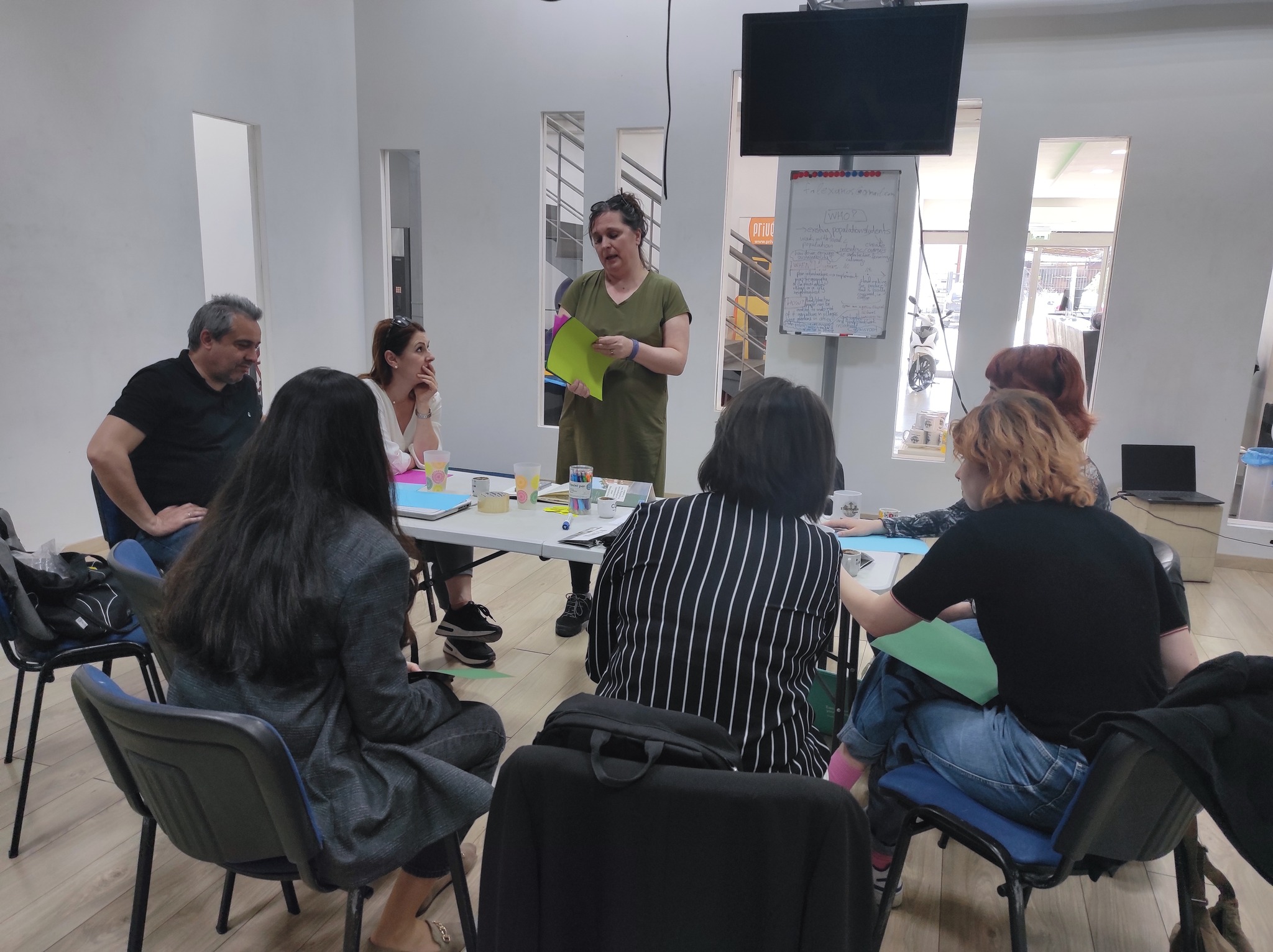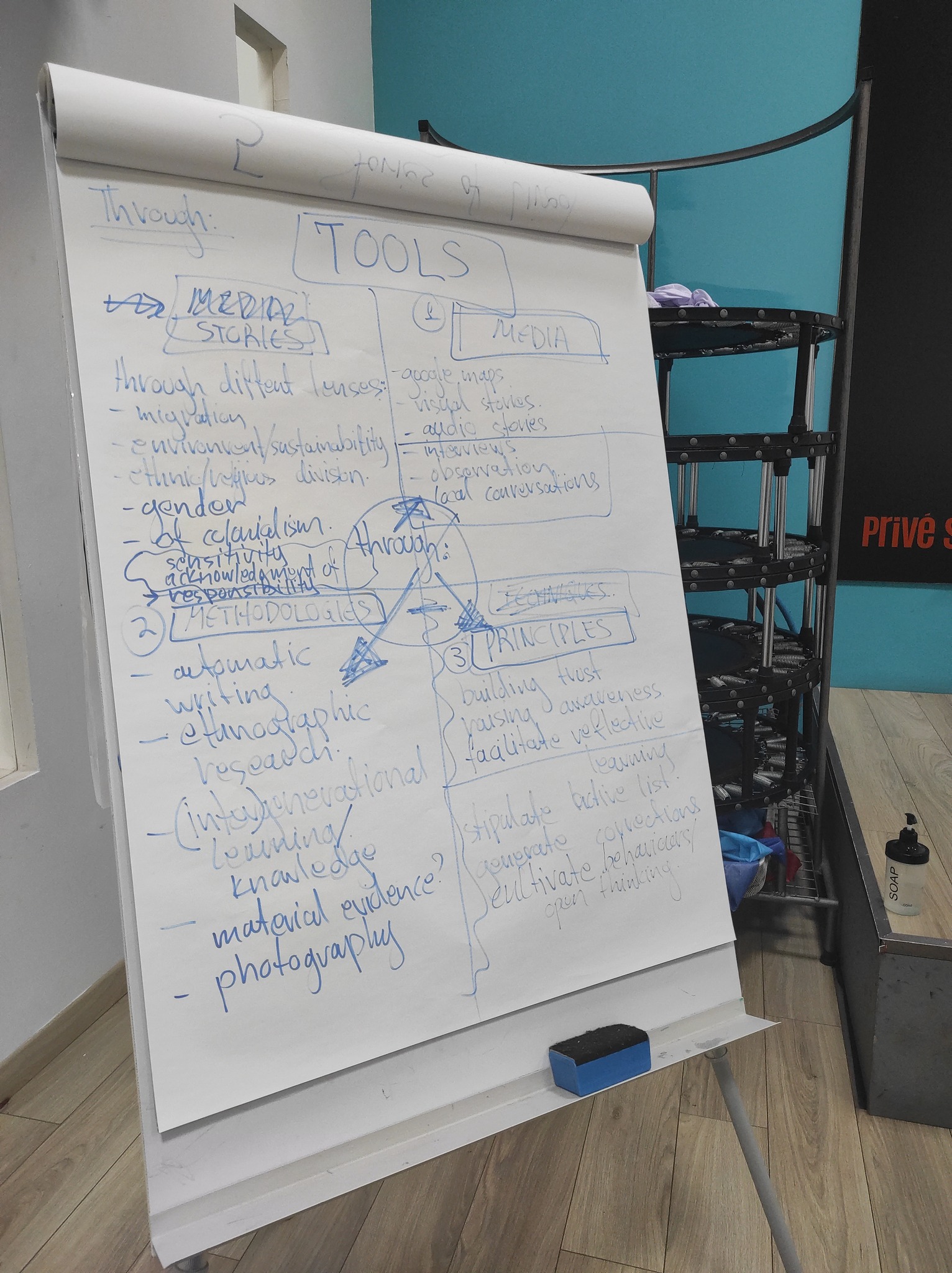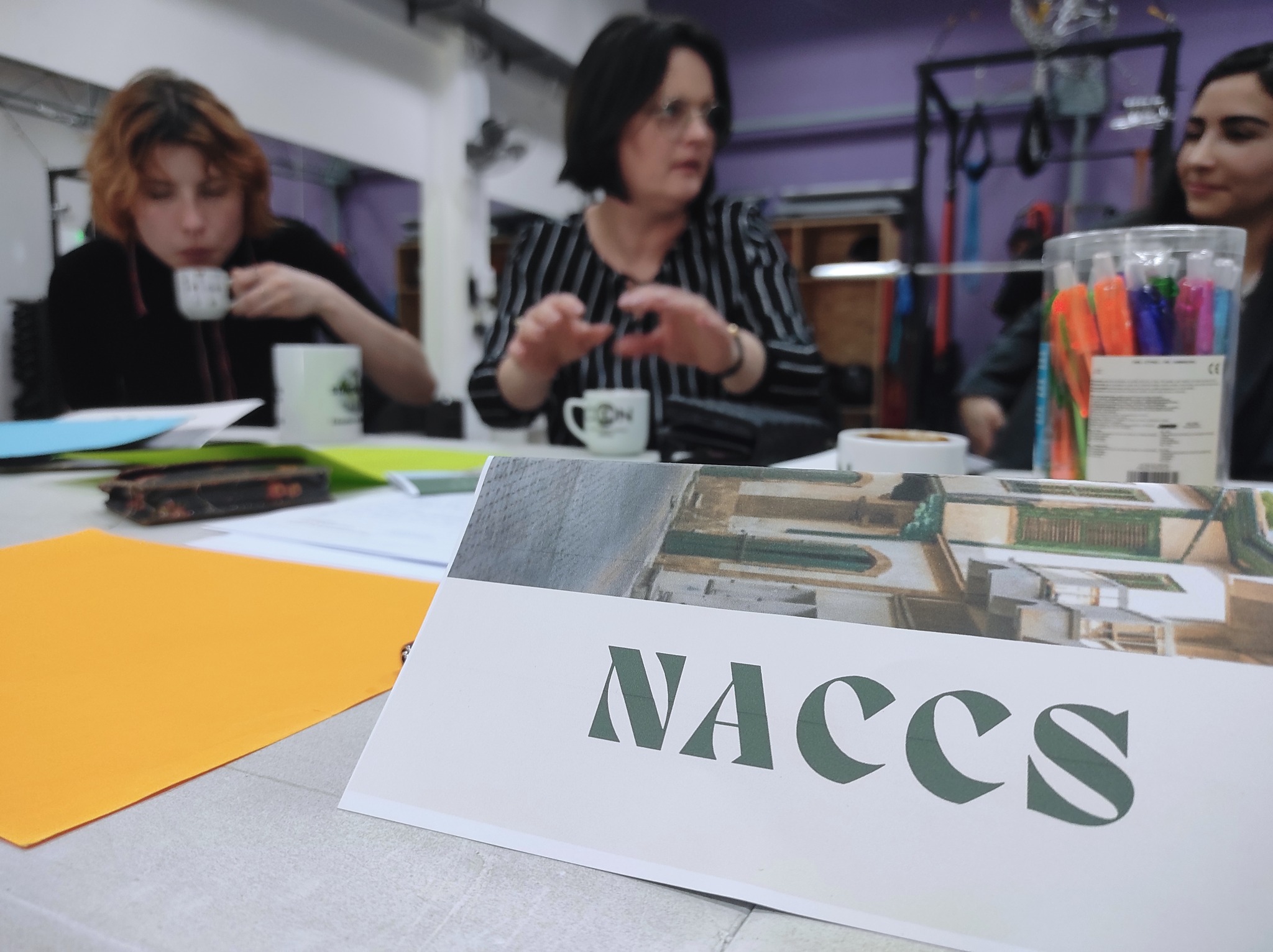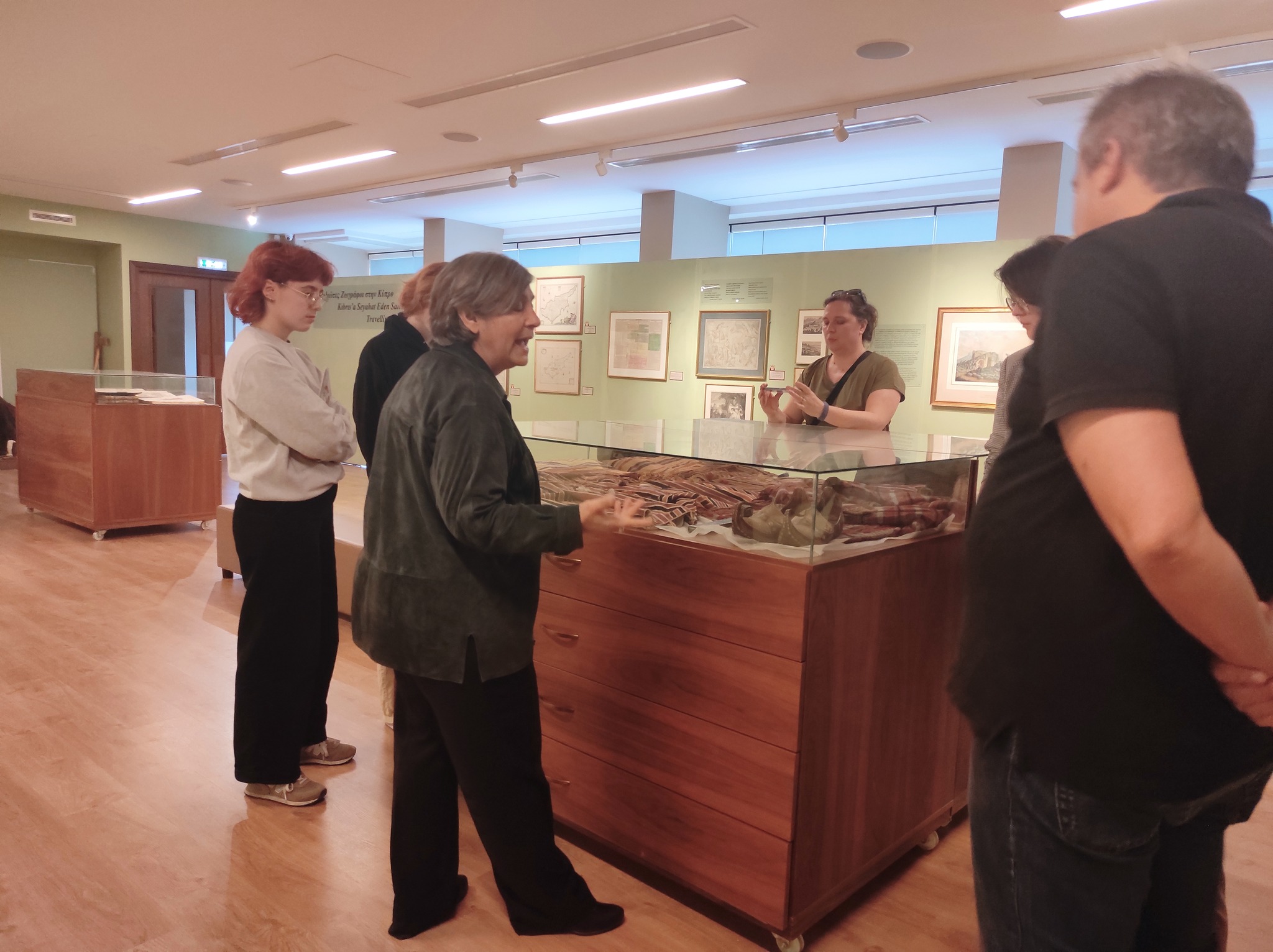Overview

Introduction
The instruments or tools presented in the three NACCS courses not only support conversation and sensemaking but also inspire the presentation of results. Reports are often written in jargon words and numbers but also in people’s own words, representing their own stories of lived experience. Pictures, audio, video, and drawings are used as visual accounts to tell and show how social and cultural interventions impact people’s life situations.
A narrative approach of accountability implies resetting focus and frame, not on the economic value of financial benefit and growth, but on shared experience, common responsibility, and human learning/growth, as well as developing new ways of working and new professional activities. Thus, it implies fundamental changes, a paradigm shift, based on shared meaning such as reflective professionality, subjectivisation, reciprocity, equality and social justice of all involved. It all starts with shared values. What do we define as valuable, beneficial and fair? Evaluation and accountability become notions of shared learning instead of only shared financial profit or economic outcome.
Defining Narrative Accountability
Defined as a shared responsibility of all parties, each of them aware of the strengths and limits of their role, focusing on solidarity and interrelatedness and not defined as a top-down process, based on power relation of funders, managers and policymakers about service providers and beneficiaries. In this sense, narrative accountability calls for not being interpreted as a notion of outside control but as part of the intrinsic shared values of both leaders, makers and participants working together. Common projects and policies are part of human experience and human learning.
The current organisational project culture is built on available resources and preset requirements, and we need to realise “as promised” exactly as imagined. However, plans and projects destined to improve social, cultural and community settings may change as project partners' and beneficiaries' needs and insights may change. How do we include insights, doubts and struggles that occurred during the realisation process? How can these experiences become part of a learning journey and be considered an essence of narrative accountability? What do these insights mean for all involved?
In the system we developed, only a few people are in power to set the agenda. It asks them Not everybody is in a position to set the agenda, and the frames for the ways in the organisation, work, school or work digital communication, etc., also meant a change in working practices. Everybody can work at any given moment. In many organisations, management, efficiency, targets and making profit clouded the view on the proper fundamentals of our practices, which are based on human relations, reciprocity and the complexity of living together, interrelated in a web of lives, human and non-human. Through this course on narrative accountability, we invite you to reflect and act with us on notions such as shared responsibility for our actions.


In the system we developed, only a few people are in power to set the agenda. It asks them Not everybody is in a position to set the agenda, and the frames for the ways in the organisation, work, school or work digital communication, etc., also meant a change in working practices. Everybody can work at any given moment. In many organisations, management, efficiency, targets and making profit clouded the view on the true fundamentals of our practices, which are based on human relations, reciprocity and the complexity of living together, interrelated in a web of lives, human and non-human. Through this course on narrative accountability, we invite you to reflect and act with us on notions such as shared responsibility for our actions.
These are based on reciprocity, genuine exchange, and the exchange of our own stories and worldviews. However, in the past decades, social and cultural professional practices were also encouraged to embrace the ways of economy, management, and business based on values of efficiency.
Why narrative accountability?
It is not defined as a top-down process based on the power relation of funders, managers, and policymakers about service providers and beneficiaries but rather as a shared responsibility of all parties, each aware of the strengths and limits of their role. In this sense, accountability is not interpreted as a notion of outside control but as part of the intrinsic shared value of leaders, makers and participants, working together and underlining joint projects as part of human experience and learning.
Current project culture within organisations is built on available resources and preset requirements; we need to realise “as promised”, exactly as imagined. However, plans and projects destined to improve social, cultural and community settings may change as project partners' and beneficiaries' needs and insights may change. How do we include insights, doubts and struggles that occurred during the realisation process? How can these experiences become part of a learning journey and be considered as an essence of narrative accountability? What do these insights mean for all involved?

How to start your journey...
To go further in the Narrative Accountability Toolkit, the Concortium of the project suggests that you first read the Trainers guidebook.
This guidebook offers comprehensive insights and suggestions for supporting Vocational
Education and Training (VET) providers operating in community and cultural settings,
focusing on narrative accountability, particularly in their interactions with marginalized
groups and situations involving power imbalances.

